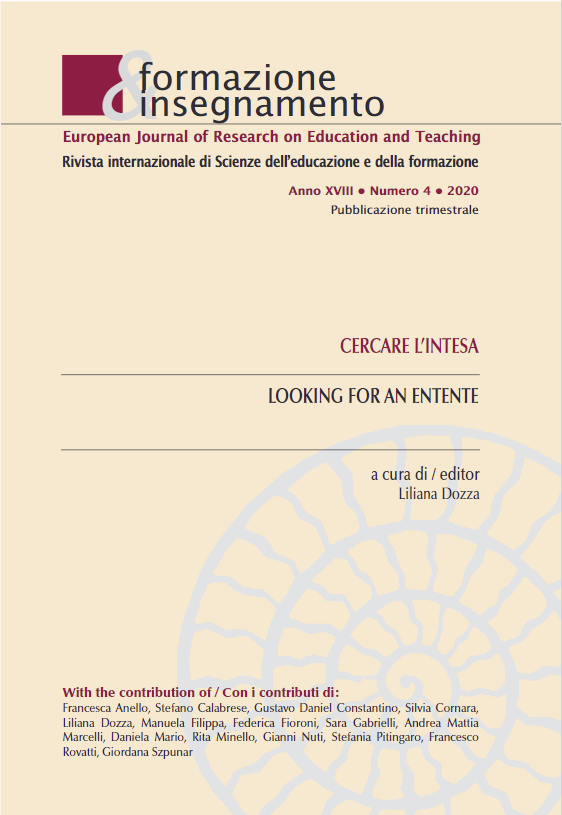Emergency Remote Teaching in Latin America Higher Education: the case of a regional public university in Argentina
DOI:
https://doi.org/10.7346/-fei-XVIII-04-20_10Resumen
This paper reports on the evolution of Emergency Remote Teaching (ERT) in a regional University in Argentina, and its possible consequences. The experiences lived by the author, narrated in the first person, are intertwined with observation, analysis and reflection on the issues imposed by ERT in Higher Education in the country that has a quarantine record and whose 2020 school year will be entirely under this modality. Didactic aspects, as well as infrastructure and institutional organization, are thoroughly informed and analysed in the light of theoretical-practical criteria. The adverse effects of a prolonged and uncertain quarantine, plus the problems inherent in the limiting conditions faced by the students, caused rapid exhaustion and disengagement. These effects can be a stumbling block for the post-pandemic stage or "New-Normal", to the extent that students and teachers could tend to revalue face-to-face teaching without capitalizing on the digital competencies acquired for the hybridization of teaching.
Descargas
Publicado
Cómo citar
Número
Sección
Licencia
Derechos de autor 2020 Pensa MultiMedia

Esta obra está bajo una licencia internacional Creative Commons Atribución 4.0.
Formazione & insegnamento se distribuye bajo la licencia Atribución 4.0 Internacional (CC BY 4.0).
Para más detalles, por favor refiérase a nuestra Política de Repositorio y Archivo, así como a nuestros Términos de Derechos de Autor y Licencia.





